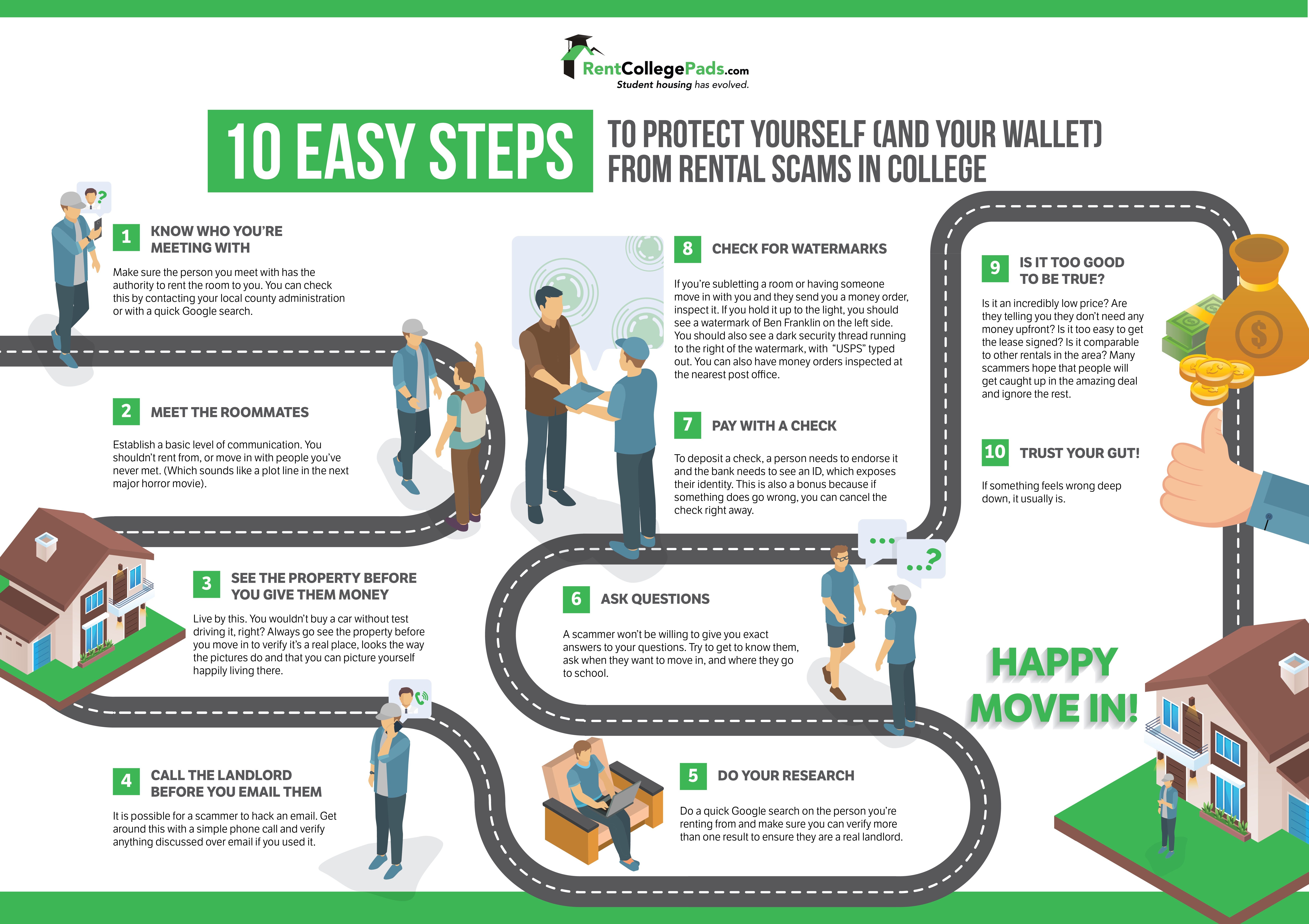College is a tough time. You’re tired, stressed, overworked but somehow still broke (?) and unfortunately, you’re an easy target for scams. Rental scams have swept the nation in many different forms successfully scamming college students out of thousands of dollars and a place to live.
Rental scammers have multiple ways of targeting their victims, and it seems as if the only way to save yourself from these scams is to completely avoid them all together. So, how do you do that? A good first step is understanding what a rental scam is.
Types of Rental Scams
A fairly common rental scam is when a scammer advertises a room to rent online, the student reaches out, sees the room and pays a security deposit. All seems normal, right? Well, come move-in-day the student finds out they weren’t speaking with the landlord and the real landlord has already rented out the room, leaving the student with no place to live and out a good chunk of money.
Another common rental scam is a sublease scam. In this case, you would be advertising subletting your room. A scammer would reach out to you over email, likely claiming to be overseas or unable to meet in person for some reason. When you ask them to send you rent, they’ll send you a check for more than the amount you need, typically by simply adding an extra zero to the end of the amount. When you notify them of the error they’ll tell you to cash it anyway so you can pay rent and tell you to just wire them the leftover amount. In a few days, you’ll find that the check bounced, and you’ll be out a hefty amount of cash.
What Happens if You Get Scammed?
Unfortunately, not much is likely to happen after you get scammed. Students can file a report with the police or even the Federal Trade Commission (FTC), but it’s not guaranteed that you’ll get any of your money back. Another option would be to visit your University Legal Clinic for guidance. This allows students to meet with a paralegal and staff attorney for free. But in most cases, they won’t be able to provide much assistance after the fact. Your best bet is to take your potential lease or communication with a roommate to the University Legal Clinic and ask for advice before you agree to anything.
What Can You do to Protect Yourself?
Surprisingly, the steps are pretty easy. You might see them as going the extra mile, but if it could potentially save you hundreds, maybe thousands, of dollars why wouldn’t you go the extra mile? Fair Use
Fair Use
You’re welcome to share the images and data found on this page. Please attribute the authors by providing a link back to this page so readers can learn more about the project and related research.
To learn more about how you can protect yourself from rental scams, check out our post How To Avoid Rental Scams.
Sources
https://thecollegeinvestor.com/5956/beware-college-roommate-scam/
https://www.huffingtonpost.com/sara-gates/craigslist-rental-scam-apartment-sublet_b_4943972.html
https://www.makingsenseofcents.com/2015/02/4-craigslist-rental-scams-to-avoid.html
https://www.scam-detector.com/houses-and-properties-scams/renter-roommate-moving-in
http://ocl.colostate.edu/Data/Sites/1/media/beware-of-scams.pdf
